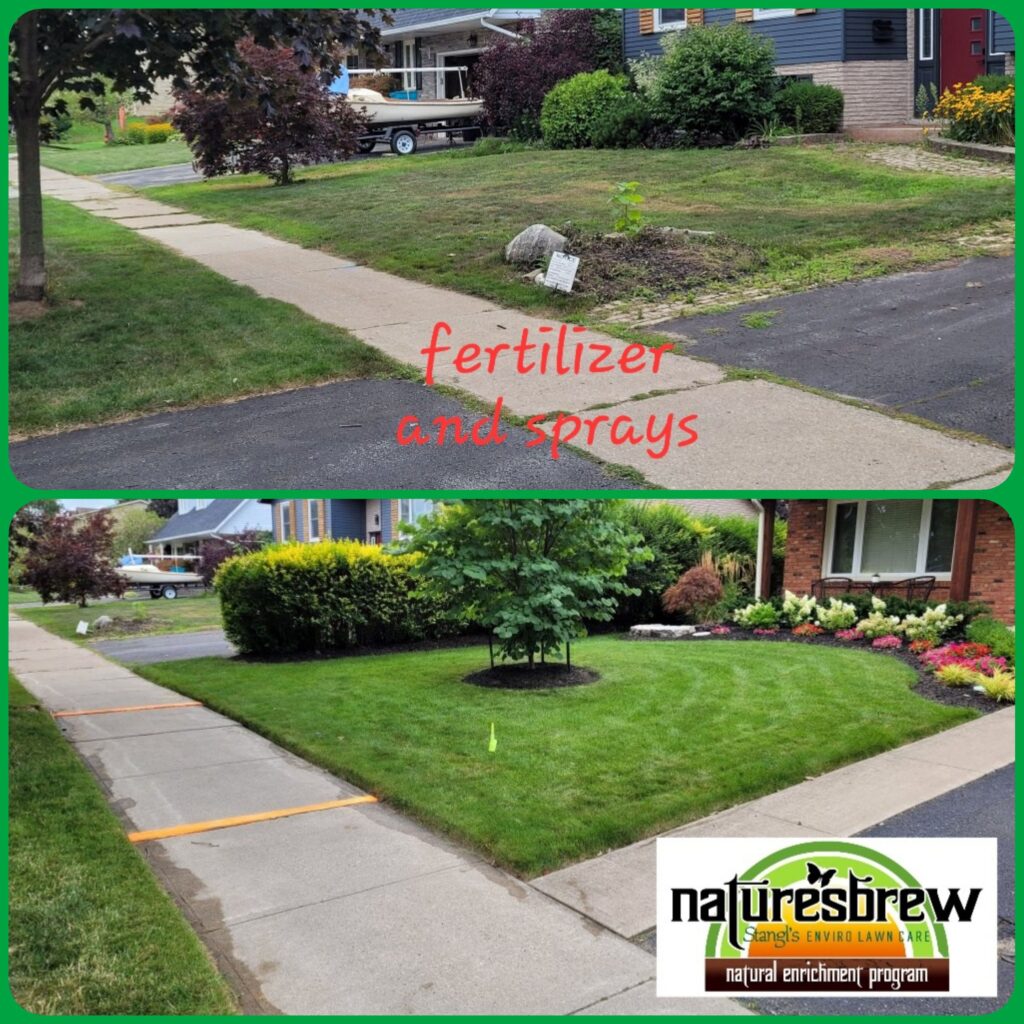As homeowners, we all want a lush, green lawn that is the envy of the neighborhood. However, many of us are unaware of the negative impact that conventional fertilizers and pesticides can have on our water, lakes, and even our own health.
Fertilizers, when overused or applied improperly, can lead to nutrient pollution in our waterways. Nitrogen and phosphorus, the primary nutrients found in most fertilizers, can cause algal blooms in lakes and rivers. These blooms can deplete the oxygen in the water, leading to fish kills and making the water unsafe for swimming and other activities.
Pesticides, on the other hand, can have a direct impact on human health. Many of the chemicals found in pesticides have been linked to cancer, neurological disorders, and developmental problems in children. Furthermore, these chemicals can also harm beneficial insects, birds, and other wildlife that are essential for a healthy ecosystem.
Regenerative lawn care, on the other hand, prioritizes the health of the soil, plants, and the ecosystem as a whole. By using natural methods such as composting, cover cropping, and reducing chemical inputs, regenerative lawn care can improve the health of your lawn while also protecting the environment and human health.
As consumers, it is important to be aware of the impact that our lawn care choices can have on the environment and our health. By choosing regenerative lawn care, we can not only have a beautiful lawn, but also play a part in protecting our water, lakes and overall health.

.